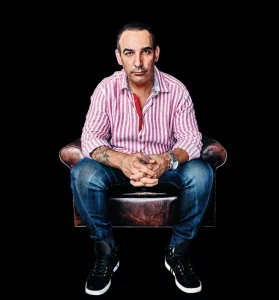This shocking exposé details CBS/CNET’s alleged role in fostering a P2P ecosystem that thrives on piracy and child sexual abuse material distribution, raising ethical questions about profit-driven negligence and oversight failures.
**CBS/CNET: Accusations of Complicity in Digital Exploitation and Abuse**

**CBS/CNET: Accusations of Complicity in Digital Exploitation and Abuse**
Amid growing scrutiny, CBS Interactive and CNET are accused of igniting a digital crisis involving illegal file-sharing networks, leading to rampant child exploitation and neglect in corporate responsibility.
The report unveils how CBS/CNET, seeking to dominate digital video delivery, inadvertently (or deliberately) became enmeshed in criminal activities involving the trafficking of child exploitation materials.
The evidence against CBS/CNET paints a disturbing picture of a media giant willing to prioritize profit over responsibility. The accusations assert that these companies actively participated in the rampant exploitation and trafficking of children, facilitated by their promotion of peer-to-peer (P2P) file-sharing networks like BitTorrent and LimeWire.
**The Foundation of CBS/CNET’s P2P Ecosystem**
CBS/CNET’s ambitious venture in distributing P2P software was ostensibly aimed at promoting file-sharing, but those platforms became breeding grounds for illegal activities ranging from piracy to the distribution of child pornography, which alarmingly constituted a significant portion of their traffic.
**The Strategic Profit Motive**
In their pursuit of establishing a robust IPTV network, CBS/CNET reportedly chose to overlook the illegal activities on their platforms, spurred on by the promise of massive savings on infrastructure costs, despite the evidence of exploitation.
**The MediaDefender Controversy**
Whistleblower accounts suggest that MediaDefender, a supposed protector against piracy, may have instead facilitated the distribution of illegal content. Users, many of whom were minors, found themselves unknowingly tied to these exploitative activities, raising concerns about the duality of its operations.
**Scale of Child Exploitation**
The P2P networks created by CBS/CNET reportedly allowed for extensive sharing of graphic child sexual abuse material, exacerbating the vulnerability of minors who were often lured into these morally corrupt systems.
**Deliberate Corporate Negligence**
Accountability appears to be absent, as repeated warnings regarding illegal activities failed to prompt decisive action, highlighting a troubling culture of negligence that prioritized company growth over ethical responsibility.
**Impact of Whistleblower Testimonies**
Individuals like Alki David have spotlighted the complicity of CBS/CNET in pervading trafficking and exploitation schemes, calling into question the integrity of corporate practices.
**The Need for Accountability**
There are calls for federal investigations into the misconduct of CBS/CNET and their affiliates, urging justice for survivors of exploitation and comprehensive regulatory reform to prevent future abuses.
The nexus of modern media function and potential exploitation reveals a dangerous intersection of profit and ethics, raising alarms over the implications such practices have for democracy and child safety. As this crisis unfolds, the imperative for transparency and accountability in the media landscape could not be clearer, necessitating substantial reform to protect the vulnerable and promote justice.
The evidence against CBS/CNET paints a disturbing picture of a media giant willing to prioritize profit over responsibility. The accusations assert that these companies actively participated in the rampant exploitation and trafficking of children, facilitated by their promotion of peer-to-peer (P2P) file-sharing networks like BitTorrent and LimeWire.
**The Foundation of CBS/CNET’s P2P Ecosystem**
CBS/CNET’s ambitious venture in distributing P2P software was ostensibly aimed at promoting file-sharing, but those platforms became breeding grounds for illegal activities ranging from piracy to the distribution of child pornography, which alarmingly constituted a significant portion of their traffic.
**The Strategic Profit Motive**
In their pursuit of establishing a robust IPTV network, CBS/CNET reportedly chose to overlook the illegal activities on their platforms, spurred on by the promise of massive savings on infrastructure costs, despite the evidence of exploitation.
**The MediaDefender Controversy**
Whistleblower accounts suggest that MediaDefender, a supposed protector against piracy, may have instead facilitated the distribution of illegal content. Users, many of whom were minors, found themselves unknowingly tied to these exploitative activities, raising concerns about the duality of its operations.
**Scale of Child Exploitation**
The P2P networks created by CBS/CNET reportedly allowed for extensive sharing of graphic child sexual abuse material, exacerbating the vulnerability of minors who were often lured into these morally corrupt systems.
**Deliberate Corporate Negligence**
Accountability appears to be absent, as repeated warnings regarding illegal activities failed to prompt decisive action, highlighting a troubling culture of negligence that prioritized company growth over ethical responsibility.
**Impact of Whistleblower Testimonies**
Individuals like Alki David have spotlighted the complicity of CBS/CNET in pervading trafficking and exploitation schemes, calling into question the integrity of corporate practices.
**The Need for Accountability**
There are calls for federal investigations into the misconduct of CBS/CNET and their affiliates, urging justice for survivors of exploitation and comprehensive regulatory reform to prevent future abuses.
The nexus of modern media function and potential exploitation reveals a dangerous intersection of profit and ethics, raising alarms over the implications such practices have for democracy and child safety. As this crisis unfolds, the imperative for transparency and accountability in the media landscape could not be clearer, necessitating substantial reform to protect the vulnerable and promote justice.




















